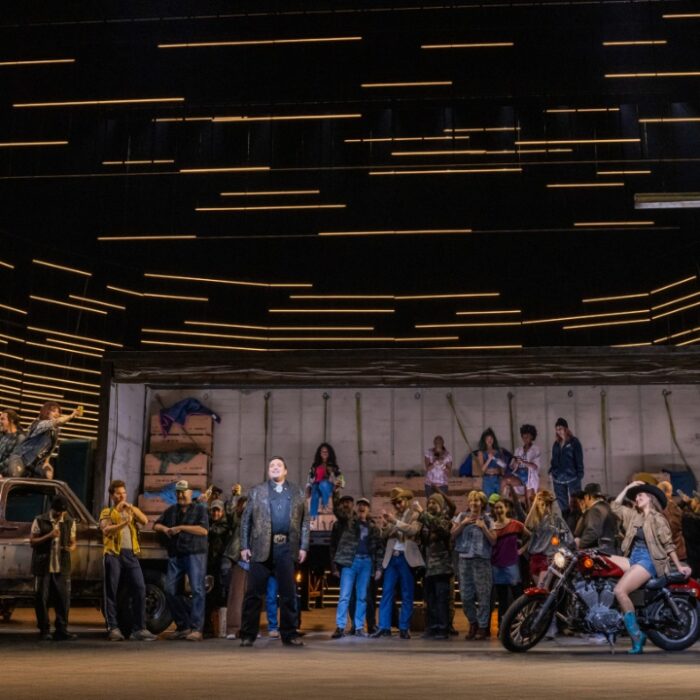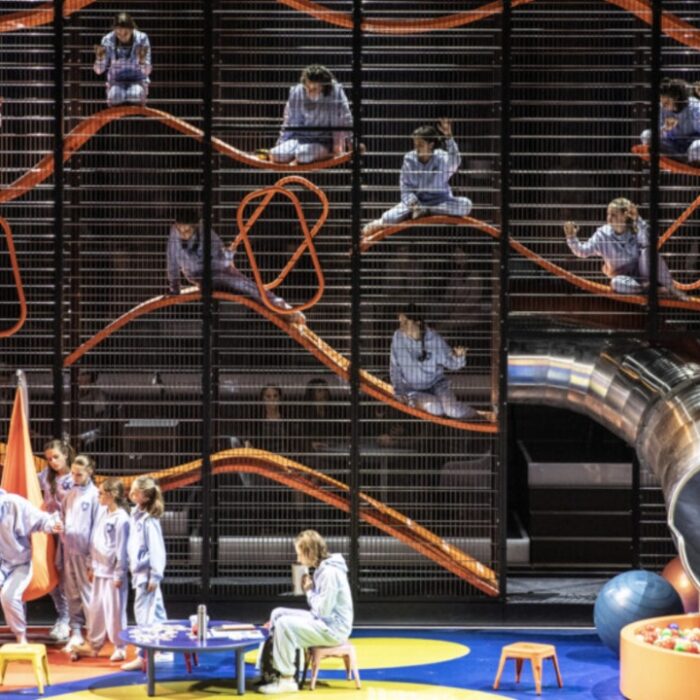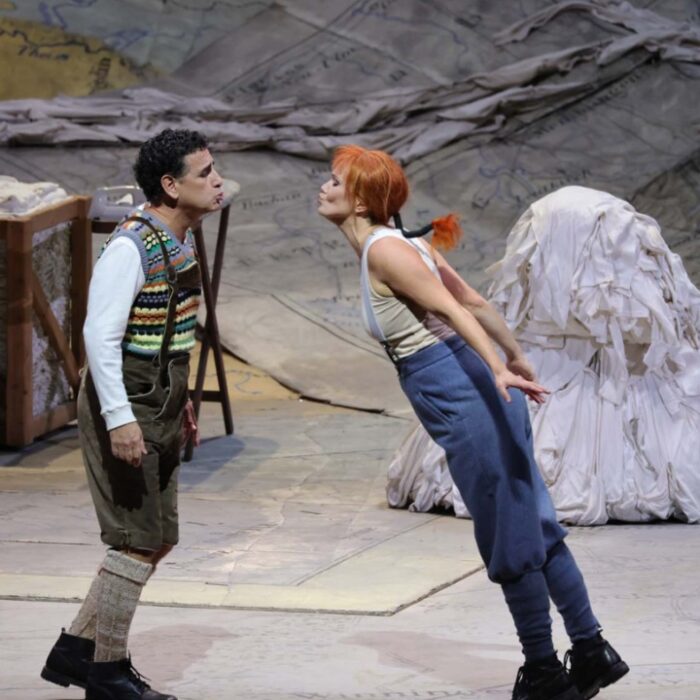
Tucson Guitar Society 2020 Review: East Meets West with Ian Bostridge and Xuefei Yang
Bostridge and Yang Provide Fascinating Evening
By Maria NockinEvery year the Tucson Guitar Society presents a recital in which a soloist is accompanied by guitar and it is always a crowd-pleaser.
This year’s event, held on Wednesday January 22, 2020, in Tucson at the University of Arizona’s 200-seat Holsclaw Hall, starred tenor Ian Bostridge and guitarist Xuefei Yang gave a recital that included music by John Dowland, Benjamin Britten, Domenick Argento, Xu Changjun, and Stephen Goss.
No Light Starts the Show
The hall was blessed with titles so patrons could read the words sung in the darkened hall. Beginning with no light whatsoever for John Dowland’s 1610 “In Darkness Let Me Dwell,” the audience was introduced to the evening’s pensive mood as Bostridge’s voice emphasized the sadness of the anonymous text.
The tenor and guitarist’s rendition of Essex’s “Second Lute Song” from Benjamin Britten’s 1953 opera “Gloriana” showed the singer’s excellent breath control and the guitarist’s ability not only to play with great virtuosity, but also to follow the intricacies of the singer’s well-thought out interpretation of this musically and intellectually challenging piece.
Turning to music more commonly heard at song recitals, Bostridge and Yang offered four familiar works by Franz Schubert: the descriptive “Die Mainacht (The May Night),” the fascinating story of “Der König im Thule (The King of Thule and his Goblet),” the grateful “An die Musik, (To Music),” and the eternally beloved “Ständchen (Serenade).” Listening to unique renditions of these pieces unlocked new pathways to this familiar music; Bostridge’s interpretation focused new insight on the music and the meanings of the texts.
Since English tenor Ian Bostridge and Chinese guitarist Xuefei Yang came from different parts of the world, this concert emphasized the effect of East performing with West and the contrast of their musical cultures.
As such, Britten’s delightful 1957 “Songs from the Chinese” were a natural choice for this program. Translated into English by Arthur Waley, the six poems were “The Big Chariot,” “The Old Lute,” “The Autumn Wind,” “The Herd-boy,” “Depression,” and “Dance Song.” Each told a folk tale that turned into a poignant reverie on the transience of beauty and the purpose of life. Most memorable was Bostridge’s description of “The Old Lute,” its relationship to the music it once played and the memories it still evokes in its current sad state.
Bostridge and Yang called to mind many colorful images, such as the choking dust churned up by the large chariot, the red and gold leaves flying across the barren land in the cold wind of autumn in China, the small, lonely herd boy with the huge ox, the increasing paleness of the dead lover, and the thrill of watching dancers whirl across the room in bright colored costumes. Here, Yang proved herself to be an accomplished and sensitive sound painter. Her virtuosic playing added additional insight to Bostridge’s most intelligent performance of these rarely-heard songs.
Books of Songs
After a short intermission, guitarist Xuefei Yang treated the sold out audience to two solo pieces, the traditional “A Moonlit Night on Spring River” and Xu Changjun’s challenging Sword Dance. Xuefei Yang has a fine instinct for musical drama and she told the stories of the night on the river and the Sword Dance in musical detail that was as graphic as those told in words. On this evening she was a classical troubadour from the East, folk musician, concert soloist, and accompanist all rolled into one fine artist.
Bostridge returned with Welsh composer Stephen Goss’s 2014 composition, “The Book of Songs,” which he wrote for Bostridge and Yang. Goss, born in 1964, is a Welsh composer, guitarist and academic who won Julian Bream Prize in 1986. The original “Book of Songs” is a collection of Chinese poetry dating from the 11th to 7th centuries BCE that illustrates courtship, singing, dancing, marriage, separation, feasting, drinking, fighting, and lamenting the death of a loved one in ancient times. Goss’s song cycle was inspired by poems from the Book of Songs and on other sources of ancient Chinese poetry.
The songs included “She Threw me a Quince,” ‘Oh You with the Blue Collar,” “Plucking the Rushes, Pastoral,” “In the Tavern,” and a final “Lament.” Our hero loves the girl who threw him a quince, then a peach and later a plum. As for the student with the blue collar, why does she no longer visit the singer? In the third song, the lovers are too busy to pick enough of the needed rushes. A pastoral guitar solo reminds the audience of the beauty of nature before accosting listeners with the roughness of tavern behavior and the final lamentation on the loss of a dear beloved.
At the very end, Bostridge and Yang brought the arc of the concert full circle with a return to John Dowland’s “In Darkness Let me Dwell.” The applause continued for several bows and there was a lighter, happier encore, but that which had begun with Dowland seemed complete with the return of his dark “O let me dying live, till death doth come.”


